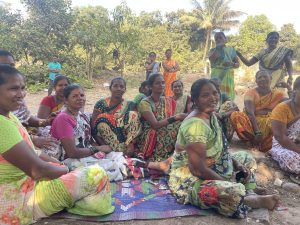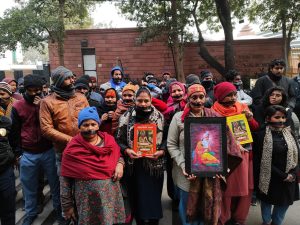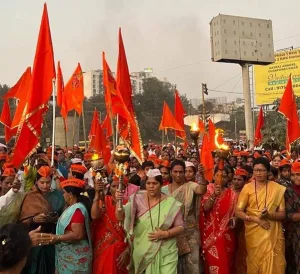What Justice for Bilkis Bano Means For Feminist Solidarity
Feminist solidarities come in all forms -- legal petitions, street protests, Whatsapp conversations, vigils and signature campaigns – as the Bilkis case shows
- Priyanka Tupe
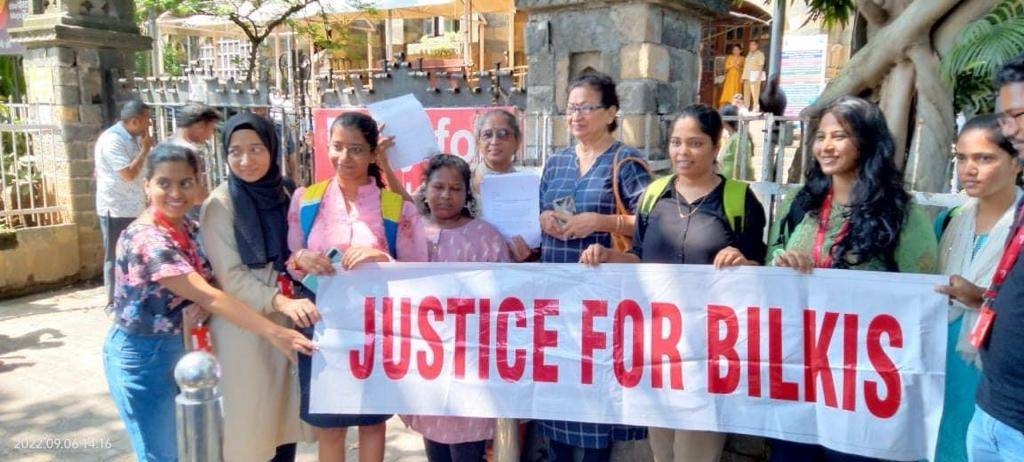
The Supreme Court verdict against the remission of the 11 convicts in the Bilkis Bano case marks a win for not just the survivor of communal and sexual violence but also everyone who was hoping for justice to prevail. Kajal Boraste, a London-based academic, was one of them.
“Hope, that was my first feeling when I heard the verdict. I participated in the Mumbai protests last year, organised by feminist groups and other organisations, and signed a petition for justice there. I felt extremely vulnerable after the remission orders were issued on 15, August 2022 and also at the government’s disregard for the women wrestlers’ protest. I feel critical inquiry and intersectional solidarity is important, especially in current times when divisive politics has turned women’s bodies into a battlefield of hate,” said Boraste, a feminist researcher.
The verdict brought hope to Saurabh Shamraj, a Mumbai-based writer in his 30s who kept the conversation about justice for Bano alive on his family Whatsapp group. The heinous crime which claimed 11 lives in Bano’s family and left her traumatised, left a deep impact on him. “I feel furious when I engage on this topic in my family Whatsapp group and how people remain mute spectators. I try to talk about the case and Bano in those groups frequently, which I feel is the bare minimum I can do as a feminist,” he said.
The remission order also shook Rupesh Patkar, a psychiatrist from Banda-Sawantwadi in Sindhudurg district. He went on a six-day fast in protest and used his social network to create a wave of empathy in his community.
“I didn’t want any attention, I did it because it affected my conscience,” Patkar said. “As a psychiatrist I can imagine the PTSD Bano must have suffered. While fasting I wrote an appeal, explaining the case briefly and seeking solidarity. I shared this message to people in my contacts through social media, mainly Whatsapp. I did this even with people who argued in support of the remission. After I began fasting, my friends in Sindhudurg – Vinodsingh Patil and Vijayarani Patil from Phondaghat village and Parag Gaonkar in Aadali village – also observed a day-long fast. They also appealed for solidarity over social media.”
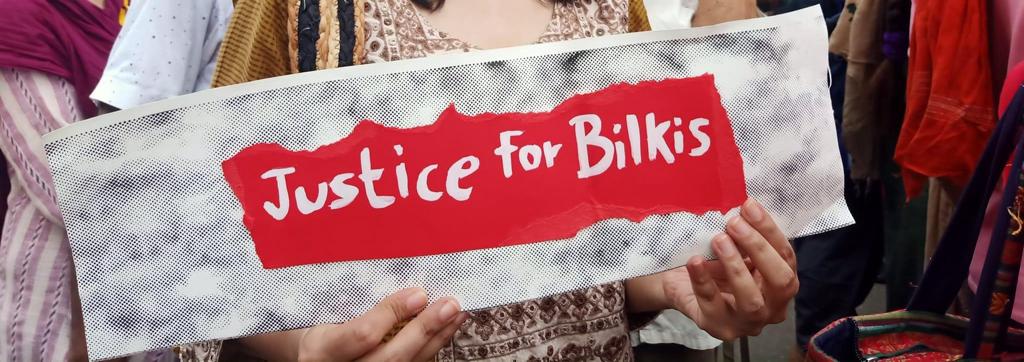
Feminist solidarities come in all forms — legal petitions, street protests, Whatsapp conversations, vigils and signature campaigns – as the Bilkis case shows. Some solidarities are very public and others more invisible, some names are known, others are anonymous, some come together in metros, others in small towns. But each of these matters as they work not only on a shared sense of grief and anger but also on the collective idea of seeking justice.
The Supreme Court on January 8, 2024 struck down the relief granted by the Gujarat government to the 11 men who were sentenced to life for the gangrape of Bilkis Bano and the murder of her family members during the 2002 riots. They have been ordered to surrender to jail authorities within two weeks.
In its order, a bench of Justice BV Nagarathna and Justice Ujjal Bhuyan said the Gujarat government’s decision to grant remission to convicts was “an instance of usurpation of jurisdiction and… of abuse of discretion” and that the State “acted in tandem and was complicit” with the convicts. TMC leader Mahua Moitra, CPI(M)’s Subhashini Ali, journalist Revati Laul and academic Ruprekha Verma filed a writ petition in the apex court in 2022 challenging the remission.
Bano has acknowledged these feminist solidarities at every step. In a statement released after the verdict she said “I have said before, and I say again today, journeys like mine can never be made alone.” She spoke of the million solidarities of ordinary citizens and women who stood with her and spoke for her that replenished her reservoir of courage at a moment when it was running dry.
Two Decades Of Seeking Justice
Bilkis Bano’s search for justice spans a long struggle. During the 2002 Gujarat riots, Bilkis Bano, then five-months pregnant, fled her home in Randhikpur village to escape the violence. With her were her 3-year-old daughter, husband and other family members. Her family was cornered and attacked by a mob of 20-30 men with sickles, swords and stones. Among them, were the 11 men who gang-raped Bilkis, her mother and three other women. Seven of her family members, including her 3-year-old daughter, were killed by the mob.
After the local police rejected her case, Bilkis Bano turned to the National Human Rights Commission (NHRC) in 2003, eventually filing an appeal in the Supreme Court. The Supreme Court instructed the CBI to take up the investigation of the case. The investigation agency apprehended all the accused in 2004. The trial was then transferred from Ahmedabad to Mumbai over fears of evidence tampering.
Thirteen individuals in the case were convicted on charges of rape, murder and conspiracy, and of them 11 were given life sentences. Radheshyam Shah, one of the convicts, approached the High Court and Supreme Court seeking early release in 2022. Three years later, on Independence Day, the state government and the Centre approved the release of the 11 men.
After they were freed, the men were garlanded outside the Godhra jail.
The Bilkis Bano case, activists say, is not only about rape but also about communal violence, State impunity, and the use of sexual violence as a tool to suppress women. It also illustrates how legal provisions can be perverted. Fighting all these in court is a huge challenge, but what gave it strength was the feminist solidarity of women’s groups, and the civil society.
‘Women Must Not Feel Alone In These Battles’
CPIM’s Subhashini Ali, who first met Bilkis Bano after the 2002 Gujarat riots at a relief camp in Godhra, and has supported her long fight for justice, was one of the petitioners against the remission of the convicts. Ali told Behanbox that it was important to understand the larger context of Bano’s struggle for justice.
“This is a very big win but one must not forget that the women who are fighting [such cases] are seeing an increase in the perpetration of similar crimes supported by BJP governments across the country. This judgement seemed like a miracle but how many of these women are going to believe in the [possibility of such] miracles? How many of them are going to be inspired to fight like Bilkis did? They must be told that there are people, organisations, and lawyers who will help them if they are approached. They must feel that they are not alone,” said Ali.
At the relief camp, Ali remembered that Bano was adamant that she wanted justice and her husband had been very supportive. “Everybody was shaken, and many followed the case because of the nature of the crime committed. Lawyers also fought for it relentlessly,” she said.
State Impunity And Complicity
Ali pointed to the fact that Bano got no support from the state government which should have prosecuted the accused on her behalf. “When the accused were finally convicted people felt that justice had been done in at least in one case though there were thousands of atrocities committed in the Gujarat pogrom. But then on August 15, 2022, we saw the pictures of the rapists coming out of jail and being greeted and garlanded by people, and being called ‘Sanskari Brahmins’ – that was so shocking.”
After the remission order, Bilkis Bano had said that this is the “end” of justice for women. “It really shook people and there was a sense that something needed to be done. Fortunately, when Bilkis saw other people file petitions, she also approached the court through her lawyer Shobha Gupta. That was when she said: ‘If so many people are ready to fight for me, I have to continue the fight’”, Ali recalled.
Ali also said that women must work in solidarity with each other, and not fall for the provocative politics of communalism. “Women also should understand how identity politics works against their own interests and drives communal hate. We have seen cases where women refuse to condemn acts of sexual violence against women from another community whom they have been told to hate. This was seen in Manipur also,” she said.
Activist Teesta Setalvad, who has spoken up against hate crime and had interviewed Bilkis Bano at the relief camp, said feminist solidarity can and does impact the system.
“Feminist solidarities have been significant and powerful in the Bilkis Bano case. These have been evident in her powerful legal battle and also over the past year after the remission. Not only did they have an impact on the system, they also strengthened Bilkis Bano’s own battle. Bilkis is a symbol of inspiration supported by lawyers and activists, women’s movement.,” said Setalvad, who has covered the Gujarat violence 2002 extensively and has been part of a larger battle for substantive justice for the survivors. Her organisation ‘Citizen for Justice and Peace’ has been documenting hate and other mass crimes.
However, she pointed out, this solidarity was somewhat absent when investigating agencies –including those appointed by the apex court– tried to nullify or erase the scale of gendered violence, the brute violence on Kausar Bano and her unborn child in the Naroda Patiya massacre, one of the worst incidents of violence in 2002.
“Not only Kausar Bano but close to 300 Muslim girls and women were at the epicentre of targeted gender violence at the time. This was symptomatic of the genocidal aspect of the crimes against humanity, this selective targeting of women of the community. This was also preceded by years of hate spewing through pamphlet poison that was not prosecuted. I have reported, in Communalism Combat –a magazine I co-edited–this hate built up since 1998.” said Setalvad
She also points out such campaigns need consistency and broader solidarities. “These convicts may soon approach Maharashtra state for remission. There needs to be a collective campaign to ensure that, this brazen act of remission for these 11 convicts, decisively turned down by the Supreme Court is not now granted by the BJP-Shiv Sena (Shinde) government in Maharashtra. Already people’s movements, civil rights and women’s groups have begun discussing how such a campaign needs to be built up”, Setalvad told Behanbox.
A ‘Letter’ From Bano, Train Campaign
Trial proceedings in cases of sexual violence traumatise women several times over. There are issues of rehabilitation, exhausting court hearings, depositions and cross examinations, the constant threat of evidence tampering, and the possibility of witnesses turning hostile. There is survivor-blaming and overwhelming media attention. All this means that survivors need institutional, emotional and social support.
“Bano had to change more than 12 places of residence in the last 20 years, lost a sense of stability and couldn’t visit her maternal home in Dahod,” said independent journalist Heenakausar Khan in the introduction to her interview with Bano published in Nabj, a Marathi magazine, in the wake of the convicts’ remission.
Khan told Behanbox: “I was shattered after listening to the horrific accounts of crime, while interviewing her. However 20 years have passed, and the memories and injuries she is carrying in her heart can’t be described in words. Her enormous courage inspired me to imagine her writing a letter to the women wrestlers who were protesting against sexual harassment at workplace. In this imaginary letter, she is also extending her solidarity to every woman who is fighting sexual violence, telling them to not give up. This was my way of imagining the solidarity that unites survivors.” The “letter” was published in Loksatta, the Marathi daily.
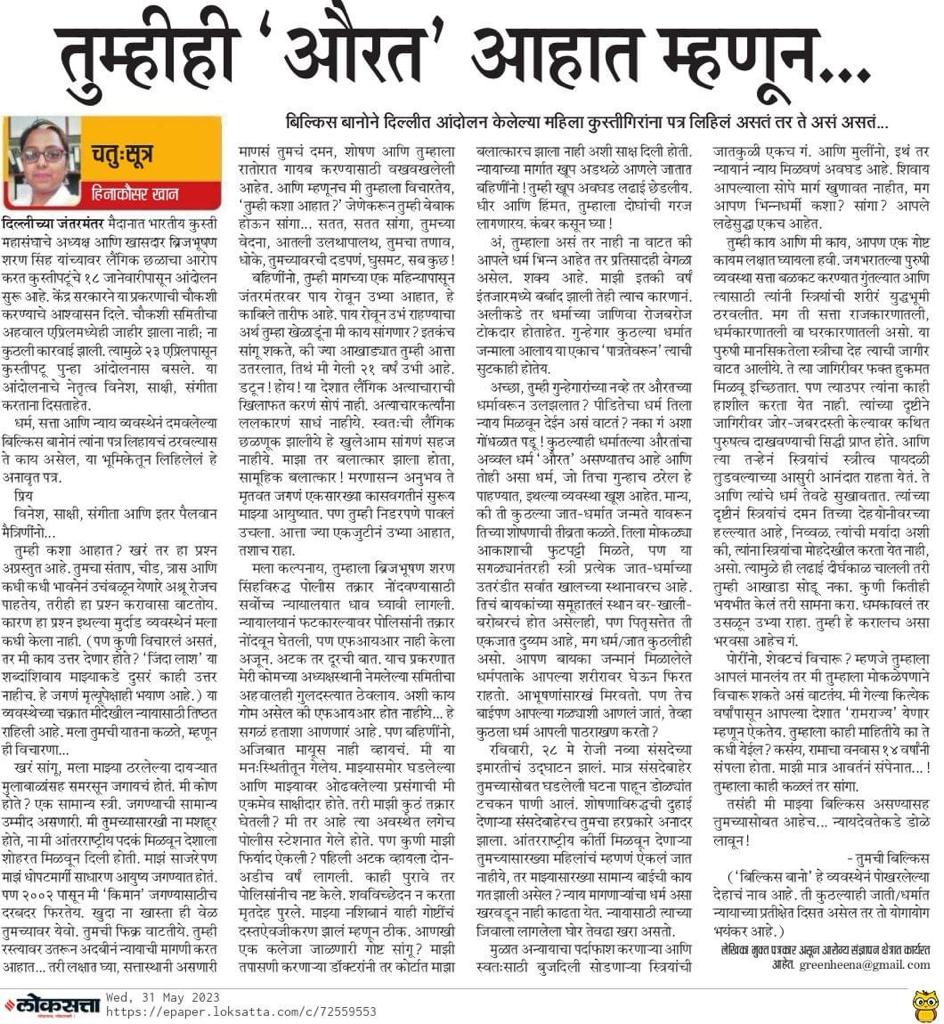
Forum Against Women’s Oppression, a Mumbai-based collective, conducted an awareness campaign on the case in the city’s local trains after the convicts were freed. “We would go to the women’s compartments with a petition and talk about the case. Many didn’t know about it but after once we informed them they would readily sign the petition. We got 8,500 signatures of common people, largely women. This was our conscious effort to create a broader solidarity,” said Chayanika Shah, a veteran feminist activist from Mumbai.
“It is the feminist movement that called the Gujarat violence a genocide and sexual violence its tool,” said Shah, who worked in Gujarat for the rehabilitation of survivors during the 2002 violence.”
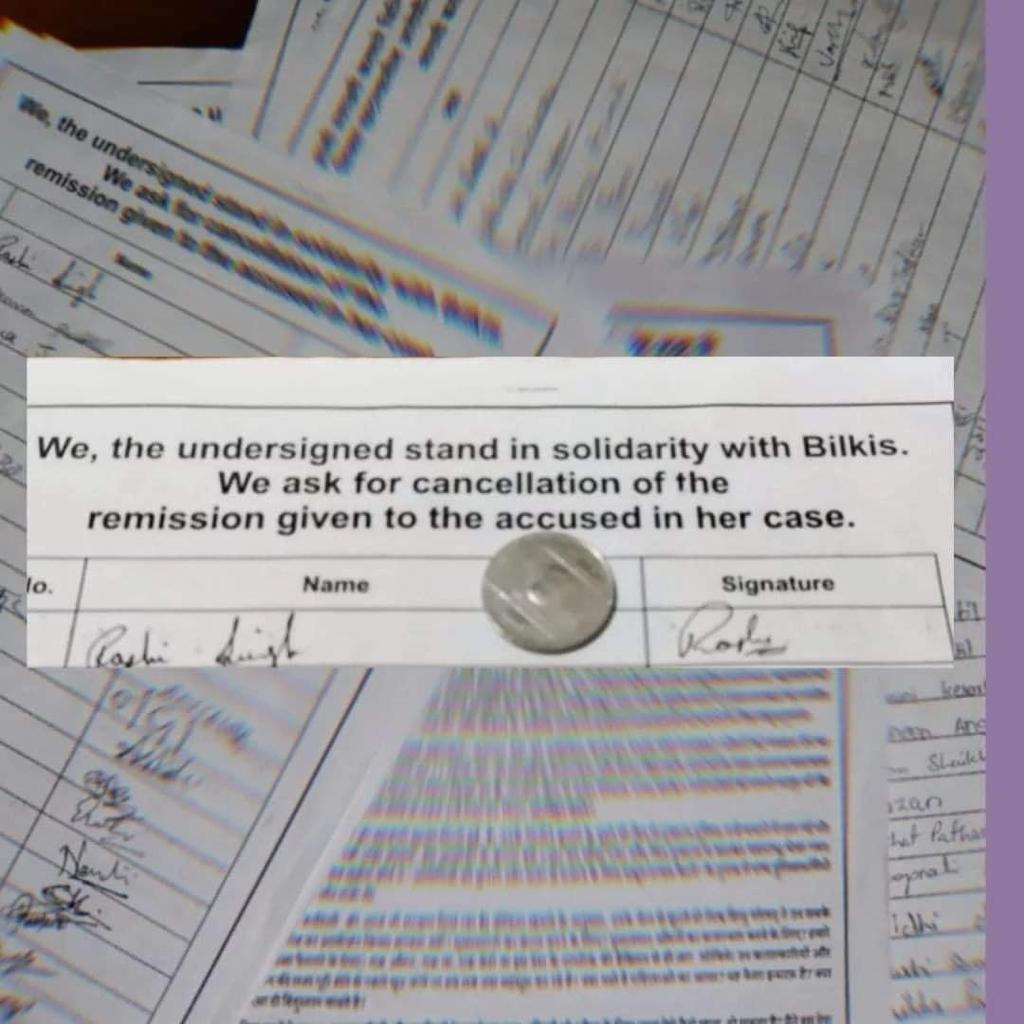
‘Many Youngsters Knew Nothing About The Case’
For Ayyub Dawood, 33, based in Mumbai, it is a moment of reassurance. He lived in Gujarat during the events of 2002 and has carried the trauma of witnessing it as a child. “I attended a protest against the release of Bilkis Bano’s rapists organised by young civil society activists at Carter Road in Bandra in 2022 in solidarity with women who are more likely to be victims of communal and caste violence. As I tried to get signatures in support of Bilkis Bano, I realised that many students did not even know about the 2002 Gujarat riots. Being from Gujarat myself, I also realised that this country and the world needs to be reminded of what happened time and again,” said Dawood.
Laxmi Yadav wrote more than half a dozen posts and articles on social media and a poem that spoke up against sexual violence and barbarism. “I just could not be quiet, that was never an option. Hundreds of people shared the posts and the poem which made me a little hopeful about the common people’s conscience. It’s as much as my battle as it was ever Bano’s pursuit of justice,” she said.
We believe everyone deserves equal access to accurate news. Support from our readers enables us to keep our journalism open and free for everyone, all over the world.
